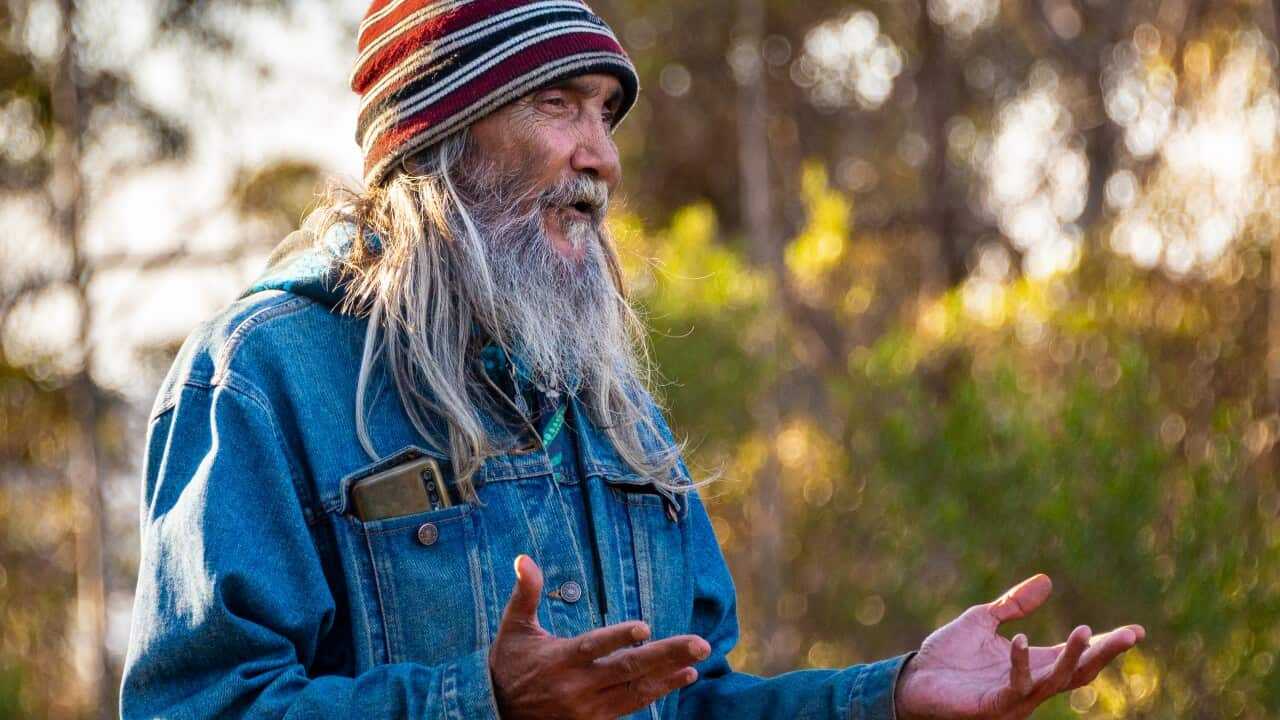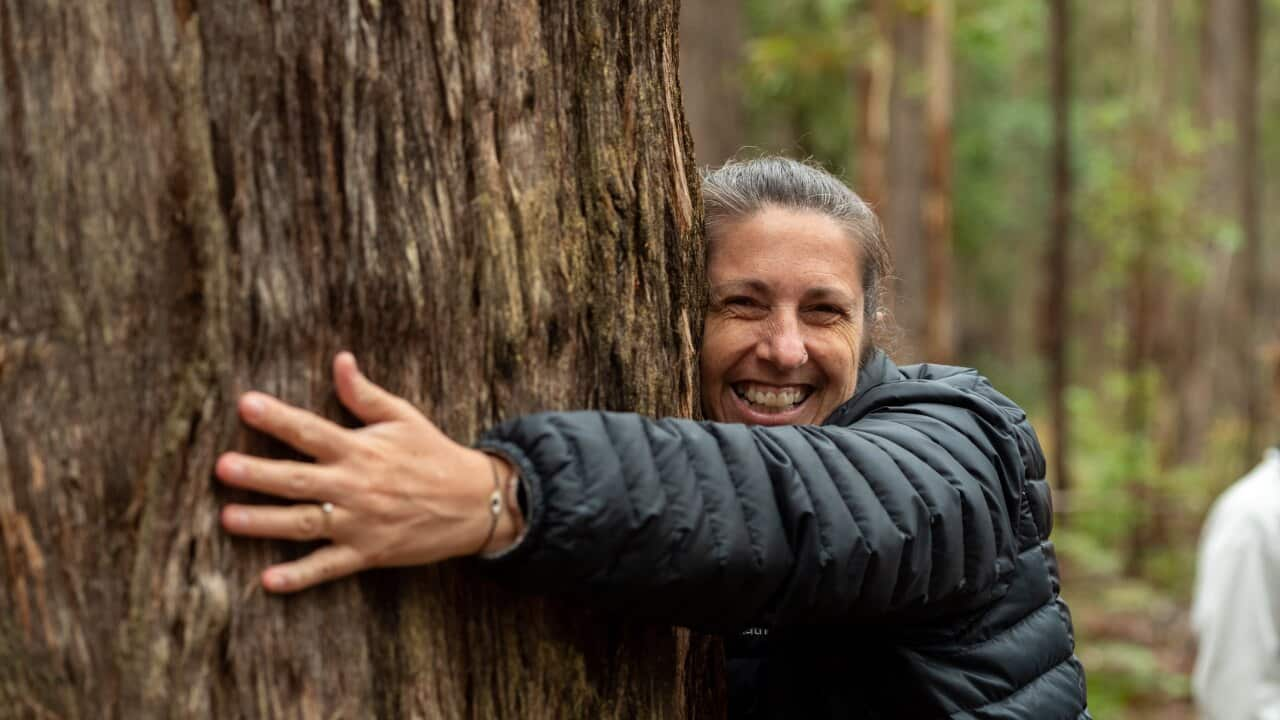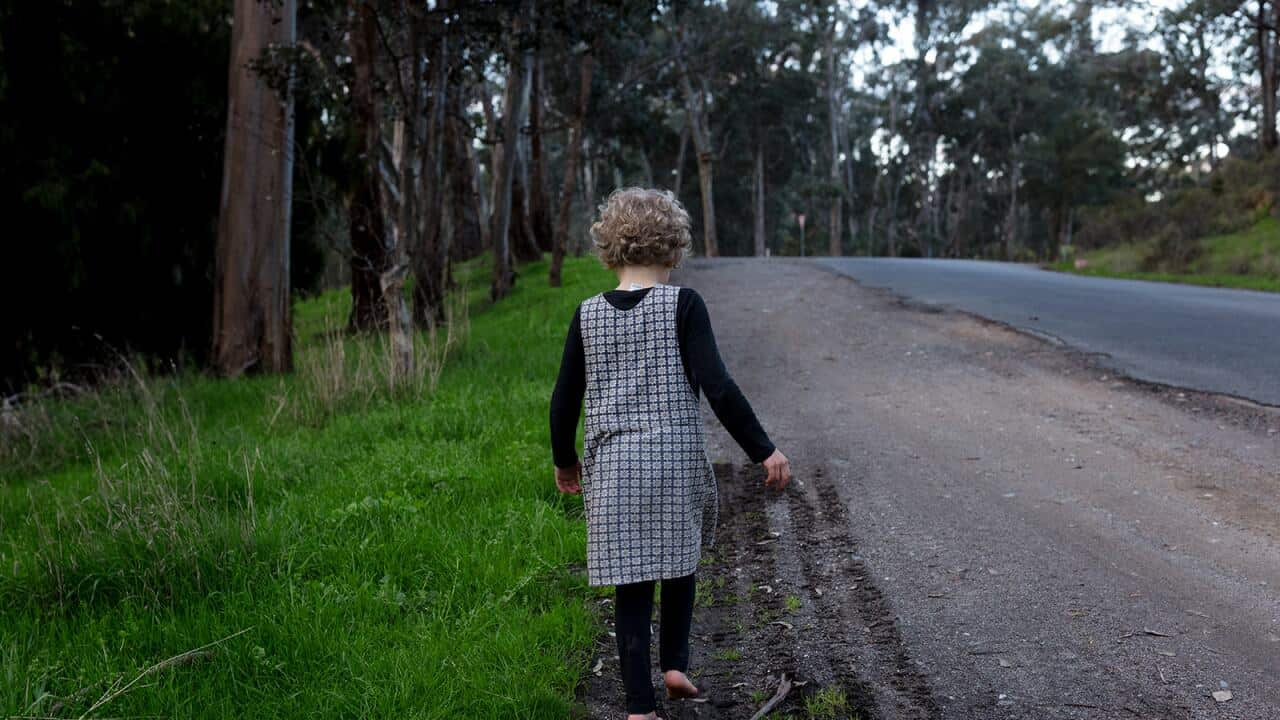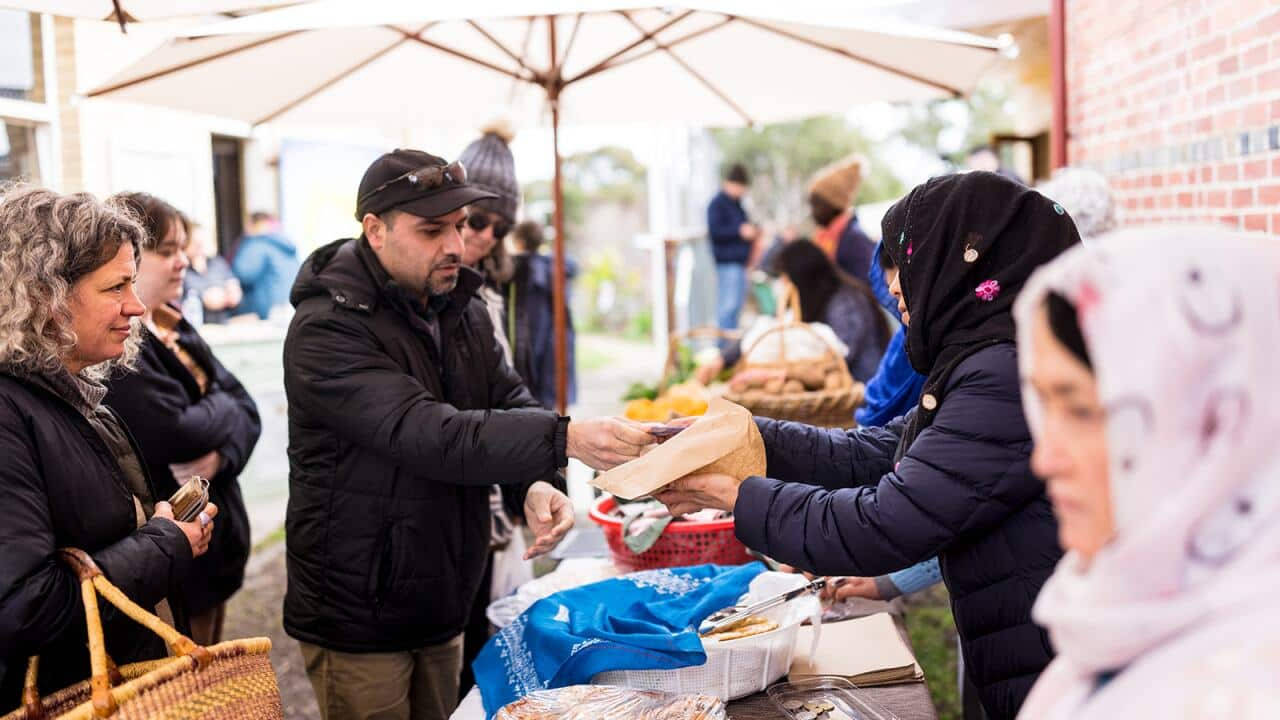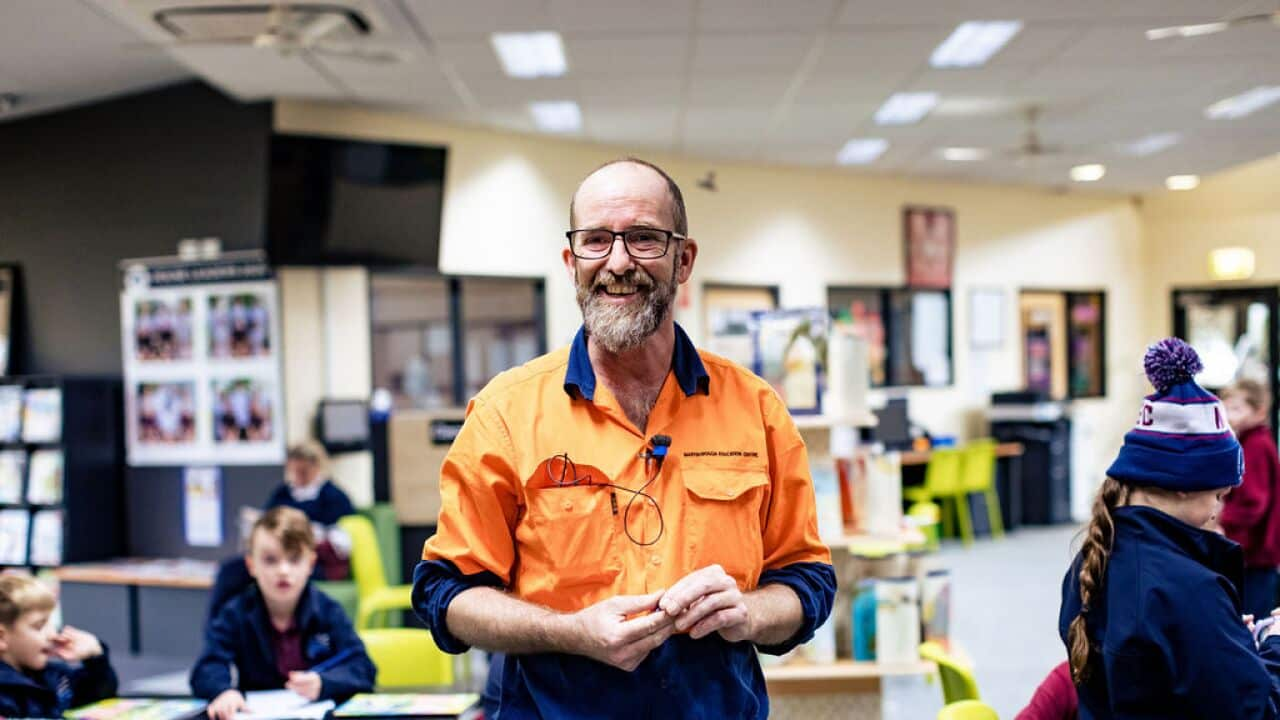The role of Elders
Uncle Rick Nelson reflects on his role as an Elder in the Dja Dja Wurrung (Djaara) community of Central Victoria. He emphasises the responsibility to care for cultural heritage, which includes addressing the impact of climate change.
Indigenous expertise in climate change adaptation
First Nations People, like the Djaara community, have a wealth of traditional knowledge and skills to adapt to climate change, gained through thousands of years of survival and resilience.
Bianca McNeair is a proud Malgana woman from Gutharagudu and a Steering Committee member of . She says that First Nations peoples have a lot to offer when it comes to addressing climate change.
From a First Nations’ perspective, our people have been adapting to climate for thousands and thousands of years. We survived the ice age here in Australia, we’ve been through genocide, and we are still here…Bianca McNeair
Land managed by Indigenous peoples in traditional ways is healthier
Around the world, land managed by Indigenous peoples in traditional ways than lands managed by Western, global enterprises and practices.
“Lots of the Country is trashed.”
The natural environments and waterways of Djaara Country in Central Victoria are among the most degraded in Victoria - making them the least prepared to deal with change.
Uncle Rick Nelson says that the colonisation and the 19th century Gold Rushes meant that “lots of the people have gone, lots of the country has gone and trashed. The early settlers come and took large tracts of land. There were massacres and ill treatment of Aboriginal people. And then the gold come and all they were interested in was finding more gold, and dug the shit out of this country.”
Everything's got a connection to look after each other... If my totem’s a kangaroo, well, I can’t harm or eat the kangaroo. So in my area, that kangaroo is safe, so it gives each species a chance to evolve and live in its own environment.Uncle Rick Nelson
Sharing Djaara knowledge and culture with non-Indigenous Australians
The Djaara community actively leads climate adaptation efforts, focusing on relationship-building and sharing traditional knowledge with the broader community.
An example is an interactive exhibition in Castlemaine, Victoria, which Elder Uncle Rick Nelson helped created. offers a unique and immersive insight into Djaara culture, Country and community.
“Kids are our future,” says Uncle Rick. “If we can have them thinking about environment, about cultural history and looking at ways Aboriginal people lived and lived on this country for so long, we might have a different way of thinking in the next generation or two.”
“Climate change is a direct threat to me and my people, Dja Dja Wurrung people.”
“The Dja Dja Wurrung recognise climate change as a direct threat to me and my people, Dja Dja Wurrung people. It affects our culture, our values, our heritage, our cultural heritage and it challenges us around our aspirations and our goals.” Rodney Carter, CEO, .
Their traditional lands are a large chunk of central Victoria, over two hundred and sixty thousand hectares that span several municipalities.

Rodney Carter, CEO, Dja Dja Wurrung Clans Aboriginal Corporation Credit: BILL CONROY, Press 1
This idea of being a custodian led the Djaara group to create and publish a climate change strategy.

Aunty Kerri Douglas Credit: Press 1 Photography
The Djaara community has created a climate change strategy titled to address the impacts of climate change on Djaara Country.
“That phrase has come a lot from the mining that has happened in central Victoria,” Aunty Kerri Douglas says. “Everything that was on top is now underneath, and it was about bringing that upside down Country and making it right again after everything that’s happened out in the environment.”
We’ll lead by example to the point of creating a strategy as a document and we’ll hope that others will copy and borrow from that.Rodney Carter, CEO, Dja Dja Wurrung Clans Aboriginal Corporation
A First Nations Strategy made with a First Nations process
Djaara members worked on the strategy through a reference group called a Wartaka, meaning to ‘come with purpose’ in the Dja Dja Wurrung language.
“How it works is that we bring people together and just yarn about that particular project or topic. And you might not cover much in the first session - because there are things people want to talk about and you might end up somewhere else that you didn’t expect - almost like a river meanders through the landscape - that’s how the conversations and yarns often went.” Oli Moraes, lead draftsperson on the strategy
A holistic strategy
The central philosophy of the Dja Dja Wurrung Climate strategy is the intimate connection between Djaara people and Djaara Country through spirit, fire, water, and the forests.
The strategy emphasises the importance of including all aspects of the ecosystem, such as microbes, bacteria, and various animal groups, in the framework.
It includes:
- cultural burning practices
- ‘forest gardening’,a sustainable and plant-based food production system.
- Indigenous flood recovery knowledge.
Wanyarram Dhel: applying First Nations knowledge
One example of the successful application of First Nations knowledge in climate change adaptation is in restoring and regenerating local waterways.
Wanyarram Dhel, meaning ‘good waterhole’ is a small natural reserve along a creekline in the heart Bendigo, Central Victoria’s biggest town. A series of interconnected ponds has been recreated along the creekline. Loose rock battering is being strategically placed along the creek, acting as a water filter. The ponds are designed to support native vegetation, such as sedges and lomandra grasses, along with the planting of young gum trees. This vegetation acts as habitat for various species, contributing to biodiversity.
The project demonstrates how integrating Traditional Owner knowledge with water sensitive design can help restore cultural, social and environmental values to a degraded urban creek.
LISTEN TO

Turning Wrong Way Climate Right Way: a First Nations response to climate change in Central Victoria
SBS Audio
19/05/202422:40
Guests in this episode of Everything We Need
Uncle Rick Nelson, Uncle Rodney Carter, Aunty Kerri Douglas, Anika Kearton, Bran Mason, Luke Wilson, Oli Moraes, Bianca McNeair
Credits
Kyla Brettle: Research, recording, editing and sound
Jane Curtis: Story editor and consulting producer
Original Music by Rob Law.
Yidaki played by Uncle Paul Chapman
Original audio from the Boorp Boorp Boondyil exhibition - where senior Jaara [sic] Cultural Custodian Uncle Rick Nelson is conducting a Welcome to Country on Jaara Lands provided by the .
Image of Uncle Rick Nelson by Melissa Bilton
Image of Uncle Rodney Carter courtesy of Dja Dja Wurrung Clans Aboriginal Corporation
Produced with assistance from SBS Audio, Caroline Gates and Joel Supple
Additional support from Endgame Media, Kyla Brettle and Rob Law
This series is based on an earlier series called Climate Ready Stories commissioned by Dona Cayetana and Geoff Caine as part of the Victorian State Government's - in collaboration with Geoff Murray and Macedon Ranges community radio.
Transcript
This podcast was produced on Djaara Country and we pay our respects to Elders past and present - thanking them for their Care of this Country - and extending respect to all First Nations People listening.
Uncle Rick Nelson: And sometimes it would rain or be windy and blow the sand off the remains -
It’s 1982 and Rick Nelson is just twenty-one - following his father, Uncle Brien, through an Aboriginal Reserve in Balranald, New South Wales. Reserves were places used to control and segregate First Nations People.
Uncle Rick Nelson: People would ring up and say these bones are sticking through the ground, Uncle Brien - what do we do about that - and he’d go down - and they’d cover them up or and put fences around them or wire over them and try and keep them buried. Because he was a bit of a leader in the community there - so it was sort of like his role.
So we learned things like that - there’s a responsibility in the community sometimes - and to look after cultural heritage, if you can, when you can - and now that my dad’s passed away - I have a role as an Elder in the community now, to fill his shoes.
Djaara Elder, Uncle Rick Nelson has spent many years learning what it means to step up and deal with inherited problems. Climate change is another problem we’ve all inherited - and Uncle Rick and the Djaara community have the kinds of skills and knowledge needed to adapt to it.
__________________
I’m Kyla Brettle and you are listening to ‘Everything we need.’
A climate podcast about.... making change in our lives and communities for the better.
With stories about people who are not waiting for new technology to save us - but connecting with where they live to protect the things they love - and rethinking what we need to thrive, now and into the future.
______________________
Bianca McNeair: From a First Nations’ perspective, our people have been adapting to climate for thousands and thousands of years - we survived the ice age here in Australia - we’ve been through genocide - and we are still here. And being the oldest continual culture in the world - we have a lot to offer when it comes to going forward and addressing climate.
Bianca McNeair - a Malgana woman from Gutharagudu - and a steering committee member for The National First People’s Platform on Climate Adaptation.
Around the world, land managed by indigenous peoples in traditional ways is healthier and more resilient to climate change than lands managed by Western, global enterprises and practices.
So, how to bring Traditional knowledge into mainstream decision making and into everyday life - in a meaningful and respectful way? That isn’t tokenistic and doesn’t just mine for information…
First Nations people everywhere are answering this - including where I live in central Victoria - where many of the stories and voices in this podcast were recorded.
_____________
Uncle Rick Nelson: Down here?
Kyla Brettle: Yeah, we go down here
I’m walking with Uncle Rick along the banks of the creek close to my house -
it would have once been a rich ecosystem teeming with life - now it’s a scrap of degraded bushland covered in blackberries and thistles.
Kyla Brettle: You’re like a cultural leader - ambassador for Dja Dja Wurrung - you must get asked quite a lot about what do we need to do to care for this country…
Uncle Rick Nelson: Everything's got a connection to look after each other - you know a person's totem - basically, if my totem’s a kangaroo, well I can’t harm or kill or eat the kangaroo, so in my area that kangaroo is safe, so it gives each species a chance to evolve and live in its own environment. Look after the country and the country will look after you back
Kyla Brettle: Do you feel there is a parallel between the way First Nations people have been treated and the way the environment and Country itself has been treated?
Uncle Rick Nelson: Yeah for sure. Lots of the people have gone, lots of the country has gone and trashed… the early settlers come and took large tracts of land, there was massacres and ill treatment of Aboriginal people - and then the gold come and all they were interested was in finding more gold and dug the shit out of this country - so there is a parallel, absolutely.
Trashed is a good word for what mining’s done to this Country - and what mining started, Western style agriculture, forestry and water management built on.
All this directly affects how resilient this landscape now is to climate impacts.
Where healthy, biodiverse environments might be able to absorb change - adapt to hotter temperatures, less rain along with more storms, floods, droughts and bushfires - fragile environments already stripped of reserves will fail.
The natural environments and waterways of Djaara Country - are among the most degraded in Victoria - making them the least prepared to deal with change.
Aunty Kerri Douglas: We need to do something drastically - the way we are going, we are not going to have a future.
Aunty Kerri Douglas is on the board of the Djaara Clans Aboriginal Corporation - a group which holds traditional knowledge and understanding of the way this landscape works and how to listen to it.
Aunty Kerri Douglas: The relationship building has to come first - for us to feel safe, to feel that sense of pride, to be able to share that knowledge - And for non-Aboriginal people to feel comfortable enough around us as community members to learn as well - We know if people have got this wall up - nothing - information won’t be shared information won’t to be learnt.
The Djaara and other First Nations people living here - are taking the lead on climate adaptation by working to knit relationships and share traditional knowledge with the broader community.
Uncle Rick Nelson (recording in installation): (singing and clap sticks) - welcome to Emu Country - performing Emu Ceremony and go with safe, good spirit…
Child#1: Right now I’m watching 32 thousand year old earth oven
I’m with my kids at an exhibition called Boorp Boorp Boondyil - or - passing knowledge to our children.
recording in installation: Waa…
Child#2: Waa…
Child#1: Waa - raven or crow…
It’s a permanent interactive installation which Uncle Rick helped create in the heart of Castlemaine.
Uncle Rick Nelson (recording in installation): This little button represents a fire hearth…..
Child#1: I like the stories and this one… So, we’ve got a giant eagle made of leaves and bark
Child#2: So Bundjil is the creator spirit - he’s like an eagle
Child#1: And there’s a nest - made out of lots sticks and weavings, and rocks at the bottom
The exhibition is a generous sharing of Djaara knowledge and culture - that speaks to the long game in climate adaptation.
Uncle Rick Nelson: Kids are our future - if we can have them thinking about environment, about cultural history and looking at ways Aboriginal people lived and lived on this country for so long, we might have a different way of thinking in the next generation or two.
_____
Rodney Carter: The Dja Dja Wurrung recognise climate change as a direct threat to me and my people, Dja Dja Wurrung people. It affects our culture, our values, our heritage and it challenges us around our aspirations and our goals.
Rodney Carter is the CEO of the Dja Dja Wurrung Clans Aboriginal Corporation. Their traditional lands are a large chunk of central Victoria - over two hundred and sixty thousand (266,532) hectares that span several municipalities.
Aunty Kerri Douglas: I know everything we say is about traditional owners - but we don’t believe that we own anything - we are custodians, we look after Country and then we return to Country at the end.
It’s this idea of being a custodian - that led the Djaara group to create and publish a climate change strategy.
Aunty Kerri Douglas: The strategy is entitled, ‘Turning wrong way climate right way’ - which is something, I think that phrase has come a lot from the mining that has happened in central Victoria, everything that was on top is now underneath, and it was about bringing that upside down Country and making it right again after everything that’s happened out in the environment.
Rodney Carter: I describe to people that it’s a bit like having a recipe and there’s an ingredient that’s lacking in it - and that’s actually my people.
For the most part - planning for the changing climate in this Country has been decided by non-indigenous people.
Rodney Carter: And it’s about bringing our knowledge in a cultural way to provide philosophy, solutions, leading to actions - principally we have to ensure that us on Djandak, on Central Victoria, we got to survive, whatever’s happening.
And at the same time, if we can be doing things that’s a global benefit, we do that as well, and we’ll lead by example, to the point of creating a strategy as a document and we’ll hope that others will copy and borrow from that.
Turning Wrong Way Climate Right Way is important because it’s a First Nations response to climate change and also because it was made using First Nations’ ways of sorting out issues. Djaara members worked on the strategy through a reference group called a Wartaka - which means to ‘come with purpose’ in Dja Dja Wurrung.
Oli Moraes: How it works is that we bring people together and just yarn about that particular project or topic. And you might not cover much in the first session - because there are things people want to talk about and you might end up somewhere else that you didn’t expect - almost like a river meanders through the landscape - that’s how the conversations and yarns often went.
Oli Moraes was Djaara’s lead draftsperson on the strategy. Drafts of the strategy went back and forth between Oli and the Djaara wartaka - and it took a while to get it right.
Oli Moraes: One of the big things that came up for members which was straight away - was that we hadn’t included specifically all these different animal groups within our framework - for Djaara and it’s really evident in the strategy that you can’t forget things like the microbes, bacteria, all the little animals that are so important to ecosystem function, and from a bio-cultural perspective are just a really important part of healthy Country - so we went away and then included those - and now they are really prominent throughout the strategy.
And just as an example, I had the privilege of being part of a cultural burn recently, and just watching a really cool, right fire moving across the landscape was incredible, because you just watch all of the insects just move out of the way - and if you saw like a government-run planned burn that’s really hot and burns up trees and moves quite fast - there is no way that all of those little insects and stuff could get out - we even saw a big dragon lizard that had gone up the tree and was just waiting for the little fire to trickle past and was probably going to go down and get some lunch - and we saw birds flying in around the burns as well, hunting - but, I think that’s a great example that we can’t leave those things out if we are going to have a healthy future for all of us - and I think that’s where the learning really comes from - for us, as non-indigenous and non-traditional owners
The climate change strategy faces government and business - and lays out an approach to caring for the whole of Djaara Country.
Oli Moraes: We are trying to transpose this deep intergenerational knowledge and wisdom about connection to this place into some Western expression of a picture or writing… is disconnected from country - yeah just totally insufficient - but where I think this kind of strategy and the work that the corporation does in these areas is that bridging those two worlds - and this document is a way to communicate and engage the other side and governments and do that two way knowledge transfer.
Luke Wilson: That’s only like 3-4 weeks ago that the burn happened, and it’s already kicked in that regeneration process of the plants growing.
To get a better sense of the Djaara vision for Country - I’m with Gatjin Program Manager Luke Wilson at Wanyarram Dhelk - meaning good waterhole - a small natural reserve along a creekline in the heart of Bendigo.
Luke Wilson: So, Djaara were influential in recreating this landscape or returning it from a wasteland back to this chain of ponds
This creekline looks very different to the degraded scrap of weed infested bush near my house - instead of being a channel - the creek flows through a series of ponds separated by loose rock battering that acts as a water filter. The ponds are full of native sedges and lomandra grasses and I can see some young gum trees that will eventually provide shade.
Luke Wilson: We’re actually re-landscaping a waterway to recreate a chain of ponds and also revegetation and whether that be snagging rivers so having logs back in the river and providing habitat - So, letting the revegetation then recreate that ecology and bringing fire back into that ecology. And recreates the birdlife and froglife on those sites - the sounds and the trickling water. So, I guess it’s giving a bit of intervention to allow the landscape to then heal itself over time.
This place looks beautiful and certainly provides a lovely cool refuge for the people and non-humans living here - but how does it do the heavy lifting of protecting us from climate impacts like storms and drought, and the severe flooding we’ve seen on this Country over the past two years.
Luke Wilson: Nature based flood mitigation….is about improving the ability of the waterways to hold water. What we have with urbanised and degraded landscapes is that water runs off a lot quicker and it results in a lot of water at one place at one time, whereas nature naturally acts as a sponge and so replicating that sponge affect across country allows water to soak in and to mitigate those peaks of the floods and recreate that ability for the landscape to absorb the water and slowly filter that water back into waterway which reduces flooding but also improves the water quality, and also provides resilience through drought as well.
Kyla Brettle: What do you feel are the biggest obstacles for the Djaara climate change strategy to get out there and have influence and impact?
Luke Wilson: When water’s most scarce is when water is most needed for providing that health and sustenance for Country, which also coincides when that water is most needed for other uses as well, whether that be for irrigation or for town water use, and so we need as a society we need to grapple with where does that water need to be and making the most of all sources of water and seeing all water on country as valuable.
A few months earlier I was at this very same good water hole - only there was a crowd of people - all here for the launch of Djaara’s - Turning Wrong Way Climate Right Way.
[ Rodney Carter: we welcome you to country… we welcome you to the home of the Dja Dja Wurrung People]
In the audience are people from business, not-for-profits, community groups and government - and I asked them about the challenges and potential they saw for the strategy to lead change.
Anika Kearton: So my name is Anika Kearton and I am the CEO of the Central Victoria Greenhouse Alliance, which is a network of councils across central and north west Victoria who are collaborating on climate action.
I think one of the challenges we have is just how organisations are structured and how our governments and the corporate sector conduct business which often leads to putting things in boxes and siloing of activities across sectors and what’s really lovely to see this strategy to present a alternative, holistic view of climate adaptation and mitigation.
Bran Mason: I’m Bran Mason, I’m the manager of nature and biodiversity for Bank Australia and board director of Black Duck Foods, a regional food sovereignty organisation.
It’s really going to be looking at all the wrongs that have been done, and some of the wrong techniques that we’ve been putting in place to restore environment and nature - and really flip it on its head, like Djaara was saying and really bring in the cultural aspect, which then immediately brings in all the different aspects of the ecosystem and the human interaction with that - and that is the only way we can restore and create a future for our future generations, our kids.
Rodney Carter: It’s about people, Country and now climate are connected to our spirit, as people as humans. Healing climate is part of healing Country and healing Dja Dja Wurrung people and our extended family.
The central philosophy of the Dja Dja Wurrung Climate Strategy is that Dja Dja Wurrung people are intimately connected to Djandak - Dja Dja Wurrung Country - through Spirit -murrup, wi - fire, water - gatjin , country - djandak, galk-galk - the forests, and now our climate.
People are an integral part of the system, as much as we’re flawed and have faults and have created the problems we are now trying to face.
We need people in the ecosystem, Dja Dja Wurrung people belong in the landscape, we need to be there to help make country well again and help make our climate well… equally, caring for Country and making Country well as we’ve seen from the last ten years of our recognition and settlement agreement, makes people well - makes my people well, we need to continue that and ensure that we do more.
It’s not just lip service at the head of the show - I feel genuinely grateful to be living and working on Djaara Country and for the leadership the local mob takes on climate…
This idea Djaara shares in their strategy about the importance of listening closely to where we live - and caring for the environment and other life forms we depend on -
Is a powerful way to think about how best to adapt to the changing climate
Bianca McNeair: no matter where you come from - if you are grounded on the Country you are standing on, and you are listening to that Country, you are actually learning what our ancestors taught us - because that’s where we learnt from - Country…- that to me is really really hopeful and something that I love to see.
My thanks to Bianca McNeair - and all the other people who spoke with me for this podcast - Uncle Rick Nelson, Aunty Kerri Douglas, Rodney Carter, Oli Moraes, Luke Wilson, Anika Kearton, Bran Mason and my lovely children.
Also thank you the “SharingStories Foundation for letting me use the original audio from the Boorp Boorp Boondyil exhibition - where you heard senior Jaara Cultural Custodian Uncle Rick Nelson conducting a Welcome to Country on Jaara Lands.”
______________
Everything we need is written, recorded, edited and produced by me, Kyla Brettle - and you can follow my climate and sound work on socials.
The amazing Jane Curtis was story editor - and helped with additional research and show notes
Rob Law Produced all the gorgeous music used throughout the series - with Uncle Paul Chapman dropping in with the yidiki.
And Carmen Bunting providing beautiful production photography.
This episode is based on an earlier documentary commissioned by the Victorian state government's ADAPT Lodden Mallee and Macedon Community Radio - with executive production from Dona Cayetana and Geoff Murray.
Also thank you Geoff Caine, Eryn Coffey and Elizabeth Geddes.
Everything we Need - was brought to light with support from the SBS Audio’ Caroline Gates and Joel Supple.
And a final extra huge sparkly thankyou to three people without whom this podcast would have never been made - Dona Cayetana, Rob Law and Brain Morris
I’m Kyla Brettle - it’s been a huge privilege to share these stories - thanks so much for listening.
